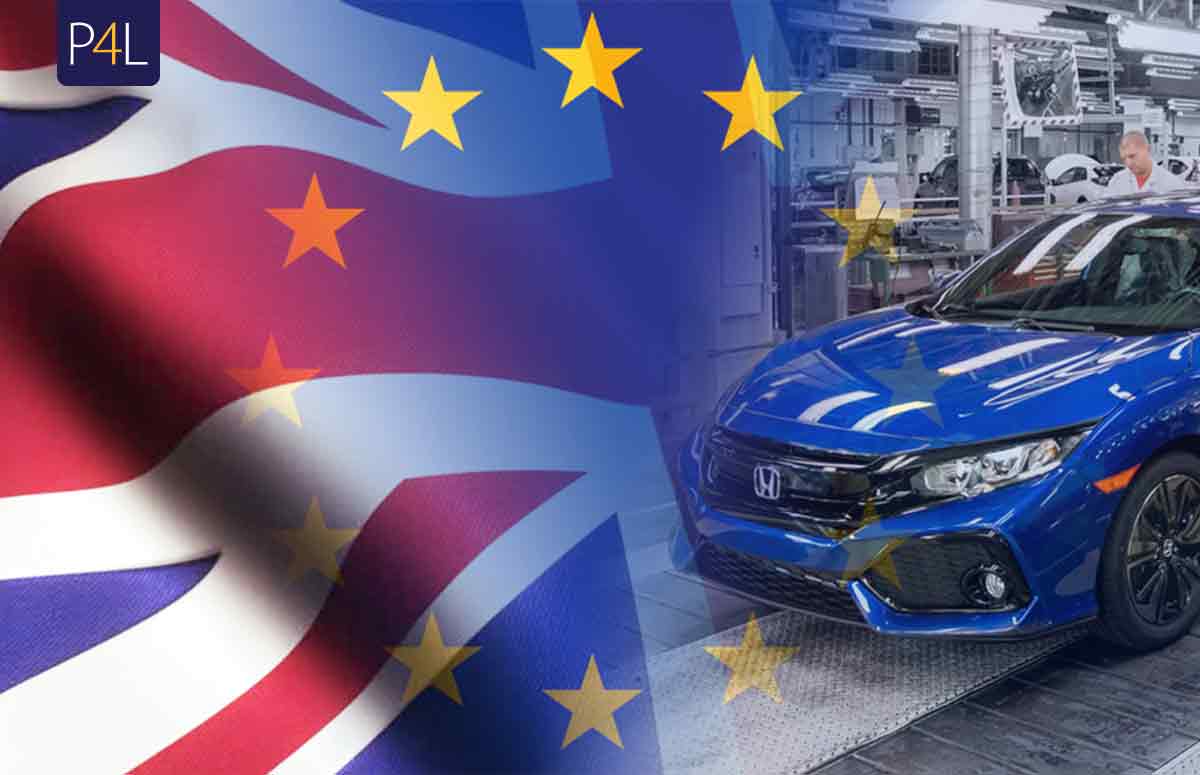Is Brexit the primary reason for the decline of the UK motor industry?

The automotive industry contributes more than £20 billion to the UK economy. With over 850,000 people employed in car production within the UK, across more than 30 manufacturing plants, the question as to the impact of Brexit is an important one. However, with cuts apparent across Europe as well, it seems that Brexit might not be the only reason car companies are making big business changes.
Falling sales in China, for example, the largest car market globally, has affected the industry worldwide. New attitudes towards diesel and emissions have also played a part, with sales of diesel cars dropping by 30% in 2018.
Poll closed!
The arguments
“The impact of a no-deal Brexit on the automobile industry would be potentially catastrophic. There is no other industry that is more tightly integrated than the European automotive industry,” according to the Society of Motor Manufacturers and Traders (SMMT). “Leaving without a deal would trigger the most seismic shift in trading conditions UK Automotive has ever experienced.”
On the other hand, Stuart Apperley, head of UK automotive at Lloyds Bank Commercial, says “ongoing uncertainty about the future of diesel in major markets around the world has put car sales into reverse” with the government’s lack of clarity regarding air quality regulations a factor, as well as speculation that diesel and petrol cars would be banned by 2040.
Recent car manufacturing events
Honda - Will close its UK factory in 2021, affecting 3500 jobs. Chief Officer for Regional Operations, Katsushi Inoue, notes it is their intentions to accelerate plans regarding electrification that have affected their business.
Ford - To close its Bridgend plant, with 1700 job losses announced. 3100 job losses in the UK expected by 2020. As well as the threat of Brexit affecting the business, one engine model is being phased out, the demand for another is in decline, and an end of a contract with Jaguar Land Rover has had an impact.
Jaguar Land Rover - Changed its working week to three days at Castle Bromwich. Plans to cut 4500 jobs, with the majority coming from the UK 40,000 workforce. The industry is already suffering, although a bad Brexit could also cost them £1.2bn a year.
BMW - Considering moving its Mini production out of the UK (and perhaps to Austria). Plans to shut down Oxford site brought forward to coincide with UK leaving the EU. Move of Mini production considered in case of no-deal Brexit.
Vauxhall Astra - Plans to build the new Vauxhall Astra in the UK depend on a satisfactory Brexit deal. Since 2017 the workforce has almost halved. Sales of the older Astra are already in decline, so some reluctance to commit pre-Brexit.
Nissan - Withdrew plans to build the new X-Trail SUV in Sunderland (where they’ve been based since 1986) in favour of Japan. No jobs lost, but plans to expand affected. - Brexit affecting long term investment plans.
UKs output of cars since the EU referendum
This shows that since the referendum the market has slowed down, but is it related to Brexit?
| Year | Units |
|---|---|
| 2016 | 1.7 million units |
| 2017 | 1.6 million units |
| 2018 | 1.5 million units |
| 2019 | 1.3 million units |
From this we can see that 2016 was the peak of cars being created in the UK, maybe the market is naturally slowing down?
| Year | Units |
|---|---|
| 2013 | 1.5 million units |
| 2014 | 1.5 million units |
| 2015 | 1.55 million units |
| 2016 | 1.7 million units |
The wider market and Private Plates
As a supplier of personalised number plates, we’ve noticed a rise in the sale of registration marks to either cover the age of a vehicle (rather than buy a new one) or, in some cases, purchases are made as investments to offset the depreciation of a vehicle.
During the “Credit Crunch” of 2008, we specifically saw the rise of the ”Cover Plate”, which are categorised as number plates that cheaply allow you to disguise the age of your vehicle.
So consumers are making changes as to how they spend their money regarding their vehicles and companies are making significant adjustments to their business plans, putting investments on hold and creating expensive contingency plans pre-Brexit while the UK’s reputation in the global market suffers. How much of this is directly linked to Brexit is difficult to assess, and until a Brexit deal has been agreed, it’s difficult to tell what the future might hold, but that very uncertainty seems to already be having a significant effect on the industry.
Poll closed!
Thanks for your input, we will publish the results of our poll to show how our customers feel.
Latest articles

Plates4Less Launches New Guide to Help Private Plate Owners Protect Their Assets
View article
Carpet Bright UK - How Fun Personalised Number Plates Drive Marketing Success
View article
Spotted - Some of the Best Business Number Plates
View article